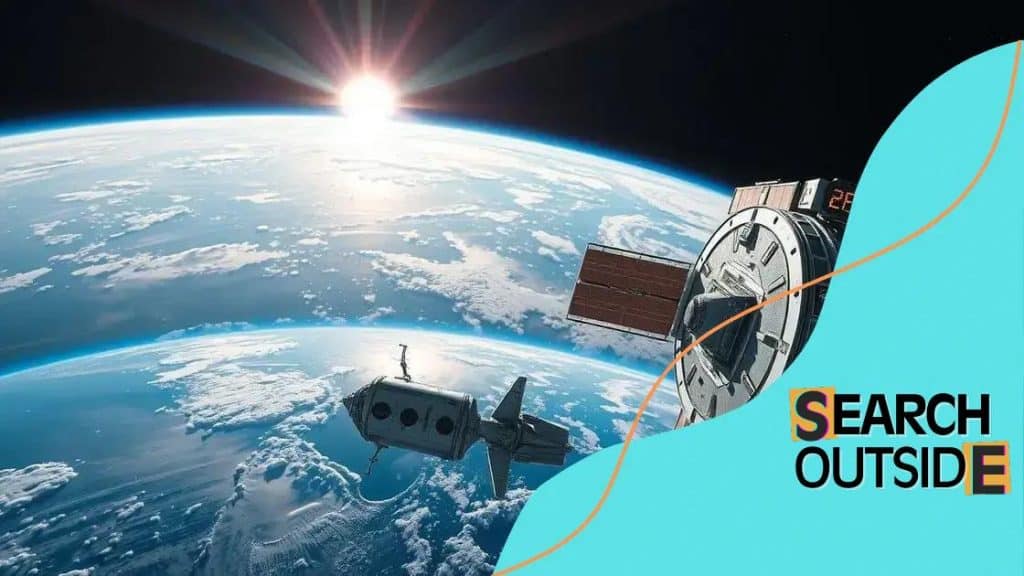The future of space tourism as a commercial industry

The future of space tourism as a commercial industry promises significant economic impact by creating jobs, boosting local economies, and driving technological innovations while facing challenges like high costs and regulatory hurdles.
The future of space tourism as a commercial industry is becoming a reality, with companies preparing to take travelers beyond our planet. Have you ever thought about what it would be like to see Earth from space? Let’s explore this fascinating topic together.
Understanding space tourism: concepts and history
Understanding space tourism is an exciting journey into the future of travel. As technology advances, more people can imagine visiting space. But what exactly is space tourism? It refers to traveling into or beyond Earth’s atmosphere for leisure purposes.
History plays a crucial role in this industry. In the early years, the idea seemed like a distant dream. The concept gained traction in the 1960s, when astronauts became the first individuals to venture into space.
The Pioneers of Space Travel
The first significant step towards commercial space tourism was the launch of the Space Shuttle program. This innovation made space travel more accessible. It set the stage for private companies to enter the scene.
- The first private space tourism flight was in 2001, with Dennis Tito becoming the first space tourist.
- Following this, several companies began exploring the possibility of making space a holiday destination.
- Today, companies like SpaceX and Blue Origin are leading the charge.
- With advancements in technology, the dream of traveling to space is gradually becoming a reality.
Now, we see a surge of interest from people around the world. They are eager to experience the wonders of space. The potential for adventure, new perspectives, and scientific exploration is driving this interest. As more missions are planned, the possibilities for space tourism are expanding.
The Future of Space Tourism
Looking ahead, the potential for space tourism seems limitless. Companies are developing new technologies to make it safer and more affordable. As access to space increases, more people will have the chance to visit.
Imagine floating in zero gravity or seeing Earth from above! This future sparks excitement and curiosity about space travel. The combination of adventure and science could change how we view our planet and the universe.
Key players in the space tourism market
In the thriving world of space tourism, identifying the key players is essential. These companies are leading the charge into the final frontier, each bringing unique innovations and ambitions.
Leading this industry are well-known names that are making headlines. One of the foremost companies is SpaceX, founded by Elon Musk. SpaceX has made significant strides, including launching astronauts to the International Space Station and developing the Starship rocket.
Major Companies in Space Tourism
Another major player is Blue Origin, created by Amazon’s Jeff Bezos. Blue Origin focuses on suborbital flights, offering short trips that allow passengers to experience weightlessness for a few minutes.
- Virgin Galactic is also a notable contender. Founded by Sir Richard Branson, they aim to provide the first commercial spaceflight experience to everyday people.
- Space Adventures has been operating since 1998 and organizes flights to the International Space Station for private astronauts.
- Recent entrants, such as Axiom Space, are seeking to create a commercial space station.
These companies not only compete but also collaborate on projects that push the limits of what is possible in space travel. Innovations such as reusable rockets and advanced life support systems are transforming how we think about space.
The future of space tourism relies heavily on these key players. Their quests to make space more accessible continue to inspire countless individuals. As they compete and pave the way, they are opening doors for new opportunities that were once considered mere fantasies.
Challenges facing the space tourism industry

The challenges facing the space tourism industry are numerous and complex. As exciting as traveling to space sounds, there are significant hurdles to overcome. Safety is the primary concern. Ensuring that space flights are safe for passengers is essential before the industry can grow.
Regulatory issues also play a critical role. Different countries have various rules about space travel. Companies must navigate these laws to operate internationally. Coordination between governments can be difficult, especially as more companies enter the market.
Major Challenges
Another challenge is the high cost of space travel. Developing new technology requires large investments. This often leads to ticket prices that only wealthy individuals can afford. Making space tourism more accessible to the general public is vital for the industry’s growth.
- Additionally, many people face skepticism about the value of space tourism. Critics argue that funds could be better used for solving Earth’s problems.
- The environmental impact of space launches is a concern, as rocket launches can produce harmful emissions.
- Another issue is the limited experience. The industry is still young, and there are many unknowns about the long-term effects of space travel on human health.
As the market evolves, the importance of addressing these challenges cannot be overstated. Innovative solutions and collaborations will be necessary to create a sustainable and safe environment for all space travelers. Building public trust will also be crucial, as people must believe in the safety and benefits of space tourism.
Innovations shaping the future of space travel
Innovations are rapidly changing the landscape of space travel. The future of this exciting field hinges on the latest technologies that make it safer and more accessible to everyone. Companies are pioneering new ideas that push the boundaries of what we thought was possible.
One significant innovation is the development of reusable rockets. These rockets can launch into space and then land back on Earth for future flights. This technology dramatically reduces costs and makes space travel more sustainable.
Key Technologies in Space Travel
Another major advancement is in the realm of spacecraft design. Nowadays, companies are creating vehicles that are more efficient and can carry more passengers. Designs are focusing on comfort and safety to improve the overall experience.
- Habitat modules are being developed to support longer missions, enabling astronauts to live and work in space.
- Advanced life support systems are crucial for ensuring that people can survive in space for extended periods.
- Artificial intelligence is playing a key role in automating flight systems, reducing human error, and enhancing operational efficiency.
As we look forward, the role of private companies cannot be underestimated. They are disrupting the traditional view of space travel and creating exciting partnerships with governments and research institutions. This collaboration can lead to further groundbreaking innovations.
The race to explore new frontiers continues, fueled by human curiosity and technological advancements. With innovations shaping the future, space travel is set to become a part of everyday life for many.
The economic impact of space tourism
The economic impact of space tourism is significant and multifaceted. As this industry grows, it presents new opportunities for jobs, innovation, and investment. Companies entering the space tourism market are attracting large amounts of capital, which can stimulate the economy.
First, look at the job creation aspect. As space tourism companies expand their operations, they will need engineers, scientists, and support staff. This demand generates thousands of new jobs in various fields.
Benefits of Space Tourism
Moreover, space tourism can boost local economies, especially in regions hosting spaceports. These areas will see more visitors, leading to increased spending on hotels, restaurants, and related services. As the number of tourists rises, communities can benefit from improved infrastructure and public services.
- Research and development in aerospace technology can also lead to advances in other industries, from transportation to medicine.
- Increased public interest in space can inspire younger generations to pursue careers in science, technology, engineering, and mathematics (STEM).
- Space tourism could pave the way for future industries, such as asteroid mining or planetary colonization.
The investments flowing into this sector can drive innovation, leading to more efficient technologies and better safety measures. Access to space can stimulate breakthroughs that benefit life on Earth. As the industry evolves, we might see a shift in focus from government-led missions to commercial endeavors.
In summary, the economic potential of space tourism is vast. With the right support and infrastructure, the benefits can extend well beyond the industry itself, positively influencing various sectors and communities.
FAQ – Frequently Asked Questions about Space Tourism
What are the main benefits of space tourism?
Space tourism creates new job opportunities, boosts local economies, and fosters technological innovations that can benefit other industries.
How does space tourism impact the economy?
It stimulates investment, improves infrastructure in hosting regions, and generates substantial revenue through tourism and related services.
What challenges does the space tourism industry face?
Challenges include high costs, safety concerns, regulatory hurdles, and environmental impacts associated with rocket launches.
Who are the key players in the space tourism market?
Major companies include SpaceX, Blue Origin, and Virgin Galactic, which are pioneering different aspects of commercial space travel.





